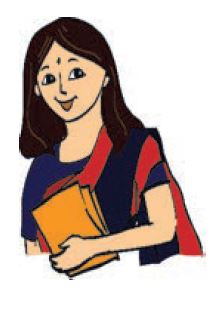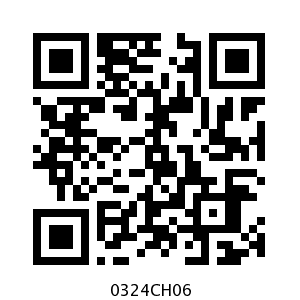Table of Contents
UNIT VI
Have you travelled on a train? Read and enjoy this poem.
Trains

Over the mountains,
Over the plains,
Over the rivers,
Here come the trains.
Carrying passengers,
Carrying mail,
Bringing their precious loads
In without fail.
Thousands of freight cars
All rushing on
Through day and darkness,
Through dusk and dawn.
Over the mountains,
Over the plains,
Over the rivers,
Here come the trains.
James S. Tippett
New words
mountains, passengers, rivers, precious, mail, plains, dusk, dawn
Reading is fun

1. Where do the trains run?
2. What are the ‘‘precious loads’’ that they carry?
3. When do the trains run?
4. What is ‘dusk’ and ‘dawn’?
Talk time

1. Do you enjoy train rides?
2. If you had travel over a long distance, how would you like to go and why?
3. If you had to spend the night on a train.
Draw and name the things you would need in this suitcase.
Let’s write
Describe an interesting train or bus journey you have taken, or would like to take, write four sentences about your journey. You can use some of the following words and phrases.
Many people,
Crowded tea stalls,
Station/bus station,
River, Window,
Big and small trees,
Seat, Hills, ticket,
Loud whistle
Example: I went to the railway station with my father...
______________________
______________________
Word building
1. Sort out these different means of transport into correct groups. One is done for you.
Bus, Car, Aeroplane, Ship, Boat, Train, Bicycle, Helicopter , Truck , Steamer
| Land | Air | Water |
| Bus | _____ | _____ |
| _____ | _____ | _____ |
| _____ | _____ | _____ |
| _____ | _____ | _____ |
ii. Complete the sentences
1. Give me some _____ to eat. (food/clothes)
2. Play with _____. (me/grey)
3. Swim across _____. (the river/the boat)
4. Let’s get on the _____ (train/dawn)
Paper fun

Let’s Move
Crouch low, then rise, take off and move around the room.
Come down like a rocket and dance to:
Up, up, up in a rocket, up we'll go, up we'll go.
Up, up, up in a rocket, A-way-up high we'll go.
Say aloud
| | dawn | Plains |
| fall | on | trains |
Engine, Engine Number Nine
Engine engine number nine,
When she’s polished she will shine
Engine, engine number nine
Ten will ride on the Shimla line.
THE STORY OF THE ROAD

It is early morning.
The road is asleep.
Everything is quiet.
But listen!

The birds are calling softly.
“Chirrup, chirrup, chirrup,” say the sparrows.
“Chirrup, chirrup, chirrup.”
“Caw, caw caw,” says the crow.
“Caw, caw caw,” “wake up, wake up.”
Here is someone else now.
“Tring-a-ling, tring-a-ling.”
It is the newspaper boy.
“Tring-a-ling, tring-a-ling,” says his bicycle. “Tring-a-ling, wake up.”
“Chirrup, chirrup, chirrup,” say the sparrows.
“Chirrup, Chirrup.”
“Caw, caw,” says the crow, “wake up.”

Who is this coming now?
It is the vegetable man.
“Peas, cauliflowers, cabbages,” says the vegetable man.
“Potatoes, cucumbers, radishes, carrots.”
“Caw,” says the crow, “wake up.”
“Chirrup, chirrup,” say the sparrows.
Tramp, tramp, tramp, tramp.
Chatter, chatter, chatter, chatter.
Who are these?

They are children going to school.
“Chatter, chatter, chatter,” talk the school children.
“Tramp, tramp, tramp,” go their shoes.
“Peas, carrots, cabbages,” calls the vegetable man.
“Chirrup, chirrup, chirrup,” say the sparrows.
“Caw, caw”, says the crow, “wake up”
“Caw, Caw, Caw”, says the crow.
“caw, caw, wake up.”
“Wake up!” asks the road.
“Can’t you see, you foolish bird?
I am wide awake”.
Poile Sengupta
New words
newspaper, cucumbers, cabbage, potatoes, radish, cauliflower, foolish
Reading is fun
1. What sounds do you hear on the road in the morning?
2. What is the vegetable man selling?
3. Why is the road annoyed with the crow?
Talk time
1. Stop, Look and Listen

Stop, Look and Listen
Before you cross the street.
Use your eyes, use your ears
And then use your feet.
Talk about how you would cross the road.
2. Can you make the sounds which you hear when you walk on the road? Talk about them.
3. Use can and cannot alternatively in the following sentences:
I _____ hear the sound of cars.
I _____ hear the train whistle.
I _____ hear the wind blow.
I _____ hear the clock.
I _____ hear the sound of feet.
I_____ hear the sound of moving of chairs.
I _____ hear the dogs barking.
Song time
Let’s sing
The Bus
The wheels on the bus go round, round, round,
round, round, round, round, round, round,
The wheels on the bus go round, round, round,
all through the town.
The horn on the bus goes beep, beep, beep…
The wipers on the bus go swish, swish, swish…
The money on the bus goes clink, clink, clink…
The babies on the bus go waa, waa, waa…
The driver on the bus says, “Move on back”…
The bell on the bus goes ding, ding, ding…
The windows on the bus go up and down…
(Traditional)
Team Time
Let’s Act
The Race
I am going home in a bus.
There is a railway line alongside the road.
Look, there is a train coming. I tell the bus driver, “Go fast!
Go faster than the train!”
But the driver slows down.

There is a railway gate.
“I must stop,” says the driver
The train whistles loudly.
“I am first!” it says.
Look at the picture and write four sentences about what you see.
1. I can see a tree’
2. ______________________
3. ______________________
4. ______________________
TEACHER’S PAGE: UNIT VI
THEMES
- Land and land forms
- Travel
SUGGESTIONS FOR CLASSROOM TEACHING
- Read the poem aloud with appropriate expressions. Explain the difficult words in the text like freight cars, precious, plains, dusk, dawn etc.
- Give information about different land forms like mountains, plains, valleys etc. Talk about places where trains can run and where they cannot (e.g. high mountains). You can discuss different modes of transport on land. You can also talk about the different kinds of roads around your town or village and the local modes of transport used here e.g. bullock carts, camels, cycles, buses, scooters etc.
- Cut out some sheets of paper in squares for the paper folding activity and give one piece to each child. You may even use old newspapers for making an aeroplane. Do allow the children to enjoy the activity by flying them in the class/ground for one period. However, make sure that the children pick up all the bits of paper once the activity is over.

- Emphasise the importance of cleanliness of one’s surroundings. Dustbins should be kept in the classroom and in a corner of the school playground for all waste paper, fruit peels, wrappers etc.
- Help the children to enact The Race.
- The class can also be made to enact a scene from a railway station (have characters like porters, vendors, passengers, etc.).
- Let children enjoy moving to a beat and playing instruments in rhythm. They can sing to the accompaniment of rhythmic sounds made with their hands, feet, mouth, etc. with other parts of their bodies.
